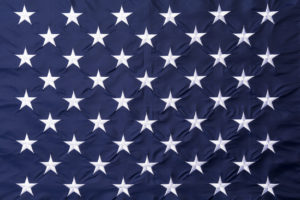Amidst all of the tributes on 9/11, there are two more public servants who deserve America’s thanks. They are not among the first responders, such as firefighters or police officers, who ran towards the burning buildings. They protected America’s financial system on that terrible day and during the days thereafter. They served the public with courage and distinction.
The first is Roger W. Ferguson, Jr., who was Vice Chairman of the Board of Governors of the Federal Reserve System. As the Federal Reserve website notes, “When the terrorist attacks occurred on September 11, 2001, Ferguson was the only member of the Board of Governors in Washington (others were traveling). He quickly moved to assure bankers and investors that the Fed would provide the lending necessary to keep the economy going in the aftermath of the crisis.”
As Mr. Ferguson later explained, the attack “could prompt a chain reaction drying up liquidity, which, unchecked, could lead to real economic activity seizing-up. The shocks to the financial system and the economy that were possible could have been disastrous to the confidence of businesses and households in our country and, to a significant degree, the rest of the world.”[1] It was critical for the Fed to demonstrate leadership in the face of this vicious attack.
First, Mr. Ferguson made sure that the financial system maintained liquidity, the lifeblood of our economy.
Why were we so concerned about maintaining liquidity in the financial system? Liquidity, as you know, serves as the oil lubricating the engine of capitalism to keep it from burning itself out. The efficiency of our financial system at maintaining adequate liquidity is often taken for granted. But on September 11, it could not be taken for granted. The bottlenecks in the pipeline became so severe that the Federal Reserve stepped in to ensure that the financial system remained adequately liquid. In other words, our massive provision of reserves made sure that the engine of finance did not run out of oil and seize up.[2]
Vice Chairman Ferguson and his Fed colleagues made sure that the Fed discount window was open and lending to banks.
On September 12, lending to banks through the discount window totaled about $46 billion, more than two hundred times the daily average for the previous month. The flood of funds released into the banking system reduced the immediate need for banks to rely on payments from other banks to make the payments they themselves owed others.[3]
These and other actions that Mr. Ferguson spearheaded prevented the American economy from going into a tailspin. I don’t know what went on behind the scenes at the Fed. But as the senior Fed governor, Roger acted with focus and determination. He didn’t dither. He demonstrated leadership and patriotism under extraordinary circumstances. If I had an opportunity to whisper in President Biden’s ear, I would urge him to award the Medal of Freedom to Roger Ferguson for his extraordinary service on that day.
A second person who deserves our thanks is Annette L. Nazareth. Ms. Nazareth was the Director of the SEC’s Division of Market Regulation (now known as the Division of Trading & Markets). (President George W. Bush later appointed her to be an SEC Commissioner.) After the attacks, there was enormous political pressure for Wall Street to reopen immediately. Notwithstanding the terrible loss of life and physical damage in lower Manhattan, many in Washington felt it was important to show the nation and the world that Wall Street could keep functioning.
The exchanges and broker-dealers appreciated the need to reopen, but they knew that they were not ready. For those firms whose personnel survived the attack, it was not easy to resume trading. Many firms’ offices were destroyed or were inaccessible. The attack knocked out communications lines and other systems. No one had considered disaster planning for a terrorist attack. Working from home wasn’t a possibility in those days. A premature opening would have resulted in failures and would have done more damage to the public’s confidence, rather than enhancing it.
On 9/11, I was general counsel of the Securities Industry Association (now called SIFMA), the trade group for broker-dealers. My members asked me to deliver one message to Ms. Nazareth at the SEC: don’t force the markets to open before they are ready. Of course, many others offered the same advice to others at the SEC, including Chairman Harvey Pitt.
Fortunately, the SEC took the advice that so many offered. As The Wall Street Journal recently described it, “The stock market stayed closed for four trading days—its longest shutdown since 1933—as crews worked to fix the damage.”[4] The subsequent reopening went reasonably well.
* * * * *
The financial markets are very different today than they were in 2001. Physical trading floors are much less important today than they were twenty years ago. Financial markets face different challenges, such as cyberattacks.[5] Those changes don’t diminish the leadership and heroism of the numerous individuals who worked so hard to restore America’s financial system after the 9/11 attacks.
Both Annette Nazareth and Roger Ferguson deserve our thanks for keeping their heads cool and acting sensibly in the face of a crisis. They prevented a terrible attack from cascading into a financial calamity. And for those of you who don’t know, Roger and Annette are husband and wife.
[1] Remarks by Vice Chairman Roger W. Ferguson, Jr. At Vanderbilt University, Nashville, Tennessee, February 5, 2003.
[2] Id.
[3] Id.
[4] After the 9/11 Attacks, Wall Street Bolstered Its Defenses, The Wall St J., Sept. 7, 2021.
[5] Id.








